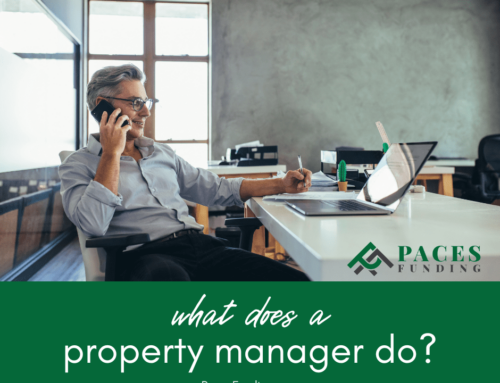
How to Use a Hard Money Loan to Buy an Urban Property
Investing in urban properties can be profitable, and using a hard money loan can make the process faster and easier. This guide explains how to use a hard money loan to buy urban properties effectively.
How to Use a Hard Money Loan to Buy an Urban Property
Using a hard money loan can simplify the process of buying urban properties. This guide covers everything you need to know about hard money loans, from securing the loan to purchasing and managing your property. This guide explains the following:
- What a hard money loan is
- Benefits of using a hard money loan for urban properties
- Steps to secure a hard money loan
- Tips for buying urban properties
- Managing your urban property investment
Here’s a closer look at each.
What A Hard Money Loan Is
A hard money loan is a short-term loan secured by real estate. These loans are often used by investors to finance properties quickly. Unlike traditional bank loans, hard money loans are typically easier to obtain and have a faster approval process. They are based on the property’s value rather than the borrower’s creditworthiness.
Hard money loans are particularly useful for properties that need significant repairs or are being purchased in competitive markets. The loan amount is usually determined by the property’s after-repair value (ARV), which is the estimated value of the property once all renovations are complete. This makes hard money loans a popular choice for real estate investors who plan to buy, fix, and flip properties.
Related: Hard money loan advice
Benefits Of Using A Hard Money Loan For Urban Properties
Using a hard money loan for urban properties offers several advantages. First, the quick approval process allows investors to act fast in competitive markets. Traditional bank loans can take weeks or even months to process, but hard money loans can often be approved within days. This speed is crucial when trying to secure a property in a hot urban market.
Hard money loans also have flexible terms and can be tailored to meet the needs of the borrower. Unlike traditional lenders, hard money lenders are more focused on the value of the property than the borrower’s credit history. This flexibility makes it easier for investors to obtain financing, even if they have less-than-perfect credit.
Additionally, hard money loans can be used for properties that require significant repairs, which traditional lenders might not finance. This allows investors to purchase and renovate urban properties that can be turned into profitable investments. The loan can cover the cost of the property as well as the renovation expenses, providing the necessary capital to complete the project.
Related: Green trends in real estate investing
Steps To Secure A Hard Money Loan
Securing a hard money loan involves several steps:
- Find a Reputable Lender: Look for a lender with experience in hard money loans and a good reputation. Research online reviews and ask for recommendations from other investors.
- Prepare Your Application: Gather necessary documents, including property details, your investment plan, and financial information. Be prepared to explain your strategy for the property, including purchase price, renovation costs, and expected after-repair value.
- Property Appraisal: The lender will require an appraisal to determine the property’s value. This appraisal will focus on the property’s potential value after renovations are complete.
- Loan Approval: Once approved, the lender will provide the loan terms, including interest rates and repayment schedule. Review these terms carefully to ensure they meet your needs.
- Closing the Loan: Sign the loan agreement and close the deal, often within days. The funds will be disbursed, allowing you to purchase the property and begin renovations.
Tips For Buying Urban Properties
Buying urban properties can be different from purchasing suburban or rural properties. Here are some tips to help you succeed:
Location Matters: Choose properties in desirable urban areas with high demand for rentals or resale. Look for neighborhoods with good amenities, transportation links, and potential for growth. Proximity to employment centers, schools, and recreational facilities can increase the property’s appeal to tenants and buyers.
Consider the Property Condition: Factor renovation costs into your budget. Look for properties that need cosmetic updates rather than major structural repairs, as these can be completed more quickly and cost-effectively. Always conduct a thorough inspection to identify potential issues.
Understand Local Regulations: Urban areas may have stricter building codes and zoning laws. Ensure your plans comply with local regulations. This includes obtaining necessary permits for renovations and adhering to guidelines for historic districts or other special zones. Understanding these regulations upfront can prevent costly delays and fines.
Market Analysis: Conduct a thorough market analysis to understand rental rates, vacancy rates, and potential appreciation. Analyze recent sales data and trends in the area to determine the best price to pay for the property and the potential return on investment. Look for indicators of future growth, such as planned infrastructure projects or commercial developments.
Managing Your Urban Property Investment
Managing an urban property effectively can maximize your investment returns. Consider the following:
Property Management: Hire a property management company to handle day-to-day operations, especially if you have multiple properties. A property manager can take care of tasks such as tenant screening, rent collection, and maintenance, allowing you to focus on growing your investment portfolio. Ensure the property manager is experienced in managing urban properties and understands the local market.
Maintenance and Repairs: Regular maintenance and prompt repairs can keep your property in good condition and attract quality tenants. Develop a maintenance schedule to address routine tasks such as landscaping, HVAC servicing, and pest control. Respond quickly to repair requests to maintain tenant satisfaction and prevent small issues from becoming major problems.
Tenant Screening: Screen tenants thoroughly to ensure they meet your criteria and can pay rent on time. This includes conducting background checks, verifying employment and income, and checking rental history. A rigorous screening process can reduce the risk of tenant turnover and property damage.
Stay Informed: Keep up with market trends and local regulations to adapt your investment strategy as needed. Attend local real estate events, join investment groups, and subscribe to industry publications. Staying informed will help you make proactive decisions and take advantage of new opportunities in the urban property market.
Related: How to adapt to a changing real estate market
FAQ About Hard Money Loans For Urban Properties
Check out these commonly asked questions about hard money loans for urban properties. If you don’t see your question here, please call our office and we’ll find you the answers you need.
What Is A Hard Money Loan?
A hard money loan is a short-term loan secured by real estate, often used by investors for quick financing. It’s based on the property’s value rather than the borrower’s creditworthiness.
How Do I Find A Reputable Hard Money Lender?
Look for lenders with experience in hard money loans and good reputations. Check reviews and ask for recommendations from other investors. You can also contact local real estate investment groups for referrals.
What Are The Benefits Of Using A Hard Money Loan?
Benefits include a quick approval process, flexible terms, and the ability to finance properties requiring significant repairs. They are ideal for competitive markets and properties that need quick closing.
What Should I Consider When Buying Urban Properties?
Consider location, property condition, local regulations, and market analysis. These factors will help you choose the right property and understand its potential returns.
Related: Networking in real estate investing
How Do I Manage My Urban Property Effectively?
Effective management includes hiring a property management company, regular maintenance, thorough tenant screening, and staying informed about market trends and local regulations.
Using a hard money loan to buy an urban property can be a smart investment strategy. By understanding the process and managing your investment effectively, you can maximize your returns and build a successful property portfolio.
Do You Need a Hard Money Loan?
Paces Funding is the top hard money lender in Georgia, North Carolina, South Carolina and Tennessee. Apply for a hard money loan here or click through our site to find out how we can help you now!














